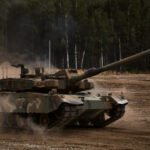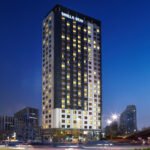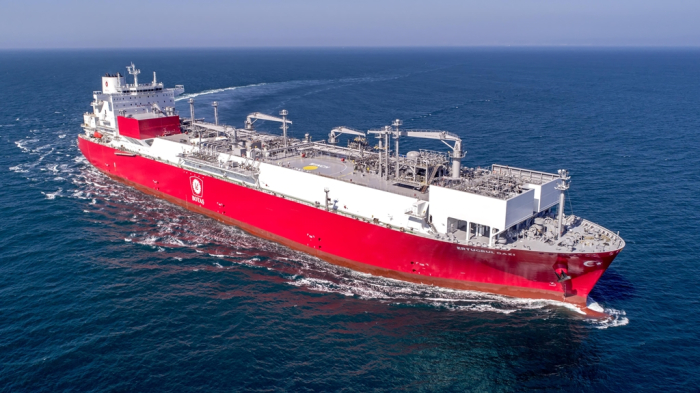
When the global shipbuilding industry was reeling from the economic slowdown in recent years, South Korea’s HD Hyundai Marine Solution Co., a ship repair and maintenance service unit of the world’s No. 1 shipbuilder HD Hyundai Heavy Industries Co., saw a silver lining in the cloud.
Unscathed by the global slowdown during the pandemic, the company rather benefited from growing demand for vessel maintenance, repair and overhaul (MRO) and retrofitting projects from ship owners.
With US President Donald Trump off to his second term earlier this month, HD Hyundai Marine sees even greater business opportunities as the US government seeks to expand liquefied natural gas (LNG) exports.
“We expect to secure a decent project to covert an aged LNG carrier into a floating storage regasification unit (FSRU) in the second half,” said a company executive during an earnings conference call on Tuesday.
A project to retrofit an aged LNG tanker to an FSRU costs between $100 million and $130 million.
Industry watchers said HD Hyundai Marine, the only Korean company with such ship conversion technology, stands to benefit from the rising demand for converting aged LNG carriers into floating LNG terminals.
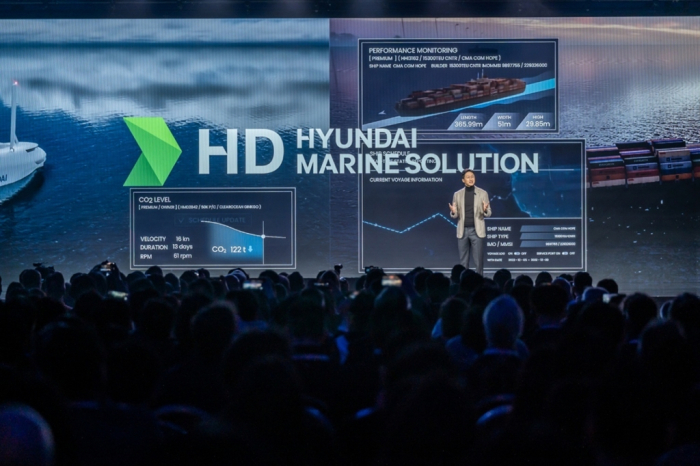
RETROFITTING CHEAPER THAN NEW SHIPBUILDING
Emerging economies such as Brazil, Indonesia and Bangladesh – seeking to import LNG from the US via sea routes – are showing keen interest in ship conversion, along with European nations that have traditionally relied on Russian pipeline natural gas.
Converting an LNG carrier into an FSRU takes about a year, whereas it takes three to five years to build an onshore LNG terminal, industry officials said.
Building a new FSRU takes two to three years, making retrofitting an aged LNG carrier to an offshore storage facility a most viable option.
Globally, HD Hyundai Marine and Singapore’s Seatrium Ltd. are among the world’s top ship conversion companies.
“We are receiving FSRU conversion inquiries from all over the world,” said an HD Hyundai Marine official.
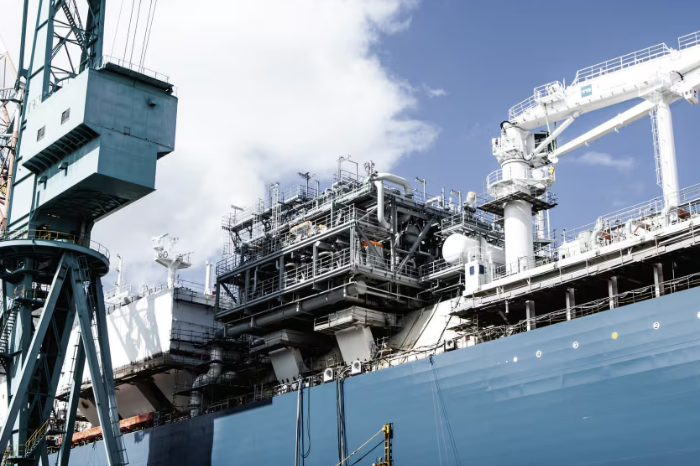
BURGEONING RETROFITTING BUSINESS
The International Maritime Organization’s tightening of carbon emissions regulations is also driving vessel conversion demand.
Shipping companies usually generate more revenue by converting aged, high-emission LNG carriers into FSRUs rather than scrapping them and buying new ships.
According to market research firm Infinity Research, the global ship retrofitting market is forecast to grow to $4.2 billion by 2028 from $1.9 billion in 2023.
HD Hyundai Marine, a spin-off from HD Hyundai Heavy Industries, was founded in 2016 as Hyundai Global Service Co. It changed its name to HD Hyundai Marine to expand its business beyond vessel aftersales services.
The company is actively expanding its presence in the vessel retrofitting, bunkering and digital solution sectors.
Last February, it signed a contract with Chevron Corp. to install emission-reducing systems on the US firm’s LNG carriers.
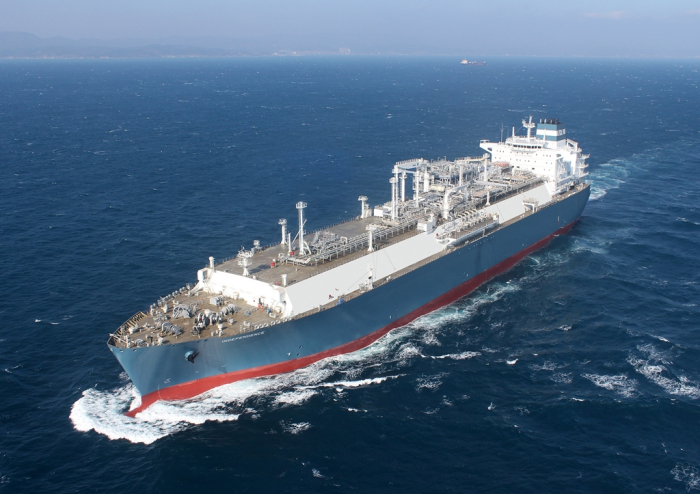
CHINESE SHIPPERS: POTENTIAL CUSTOMERS
Demand for installing reliquefaction systems on LNG carriers is also rising.
HD Hyundai Marine Solution recently secured ten reliquefaction conversion projects, each worth about $10 million.
The company said one vessel has already been completed and the remaining projects will be completed by the end of 2026.
HD Hyundai Marine has converted 853 eco-friendly ships, including LNG carriers, since 2017.
Falling freight rates, as indicated by the Shanghai Containerized Freight Index (SCFI), also offer HD Hyundai Marine an opportunity to expand its ship retrofitting business, as shipping companies tend to resume delayed maintenance and repair at lower costs.
Industry officials said Chinese shippers are potential customers of HD Hyundai Marine as some 70% of the mid-size engines installed on those ships are made by affiliate HD Hyundai Heavy Industries.
“The technological barriers for eco-friendly engines are high, making it difficult for Chinese rivals to catch up with us easily,” said an HD Hyundai Marine.
By Hyung-Kyu Kim
khk@hankyung.com
In-Soo Nam edited this article.



